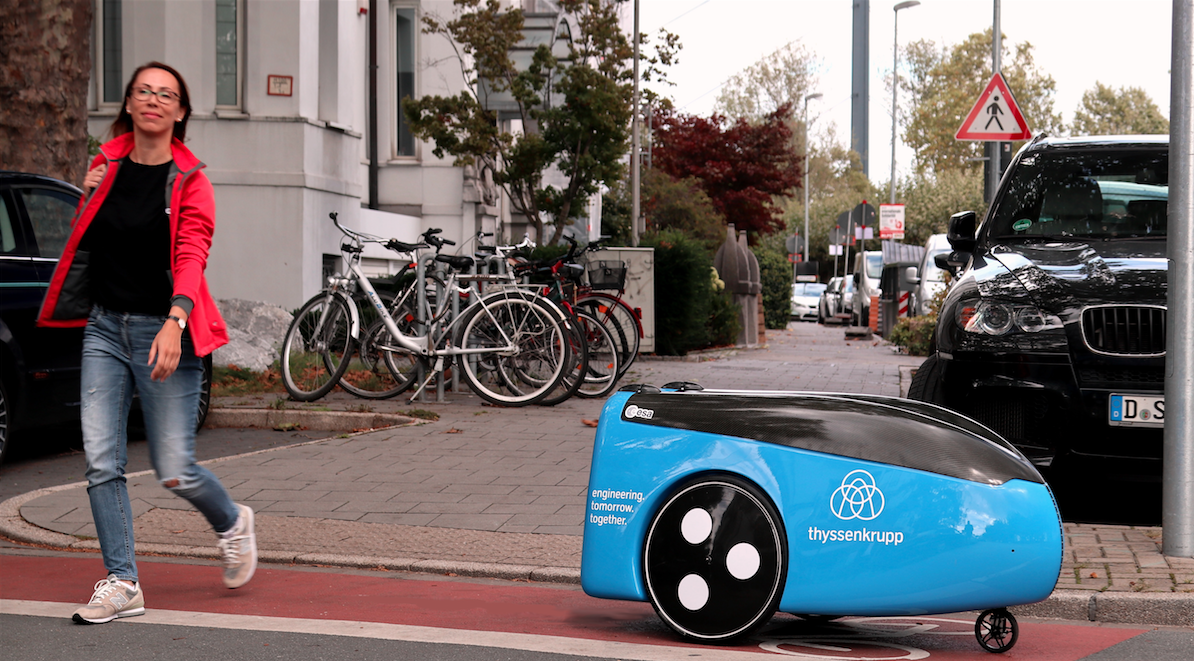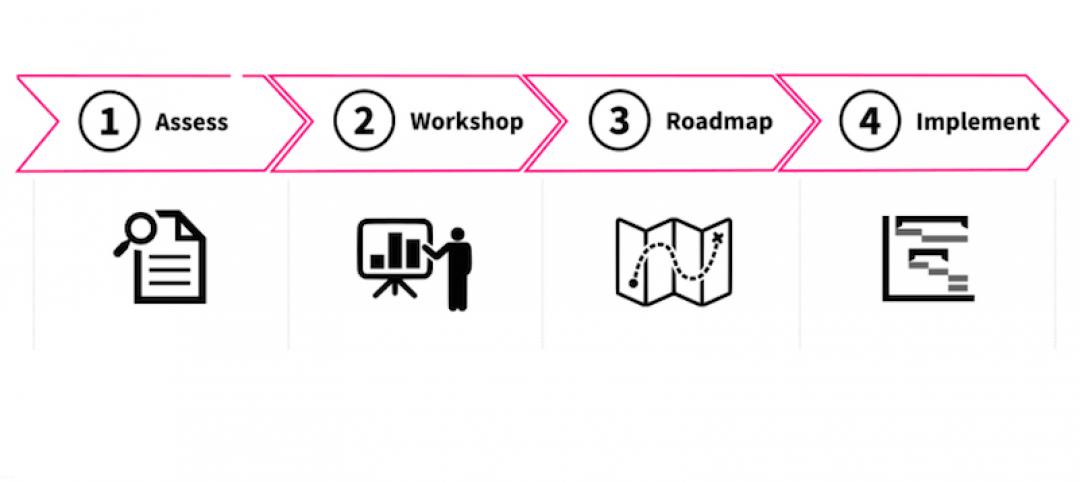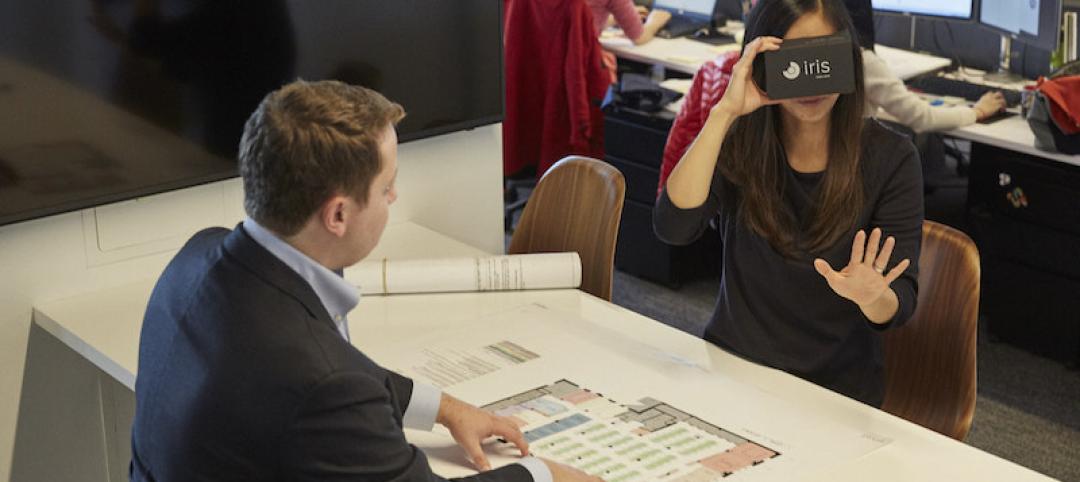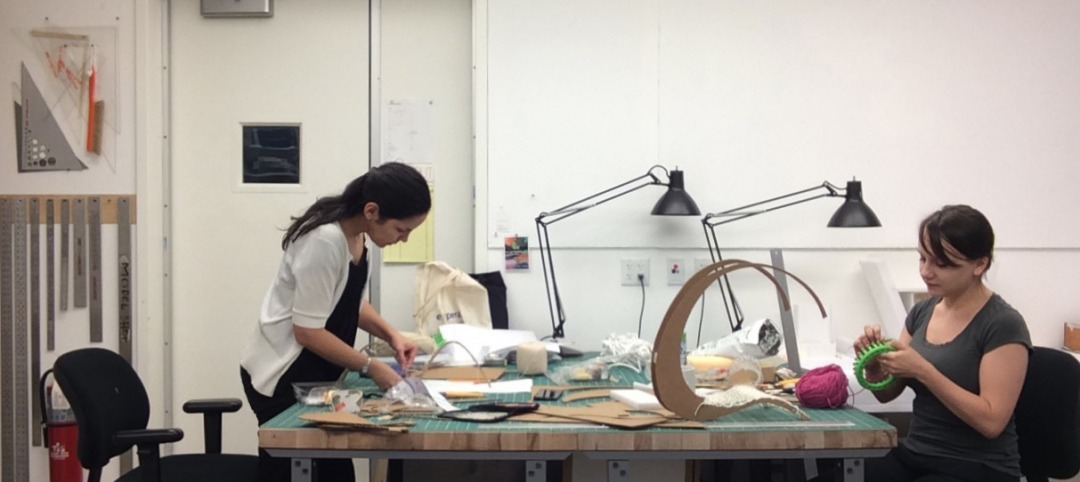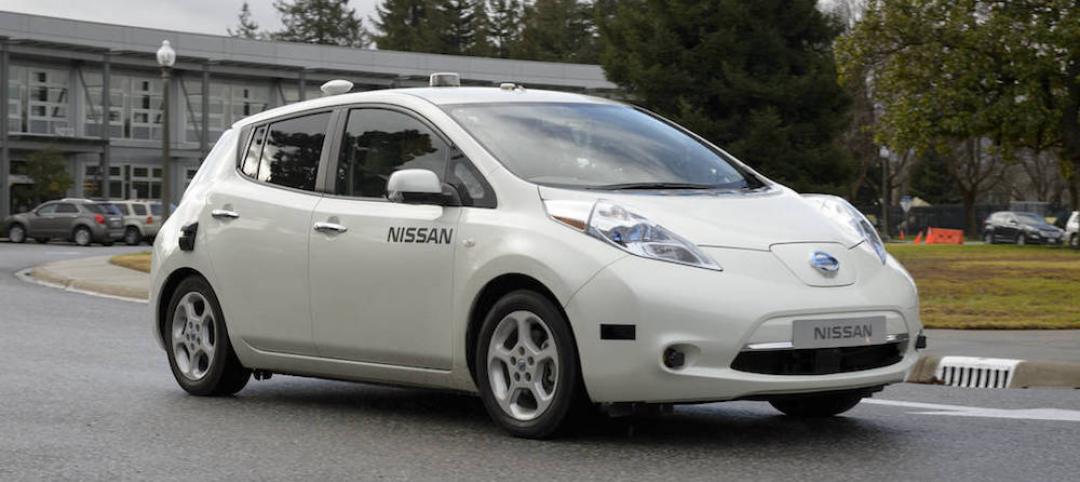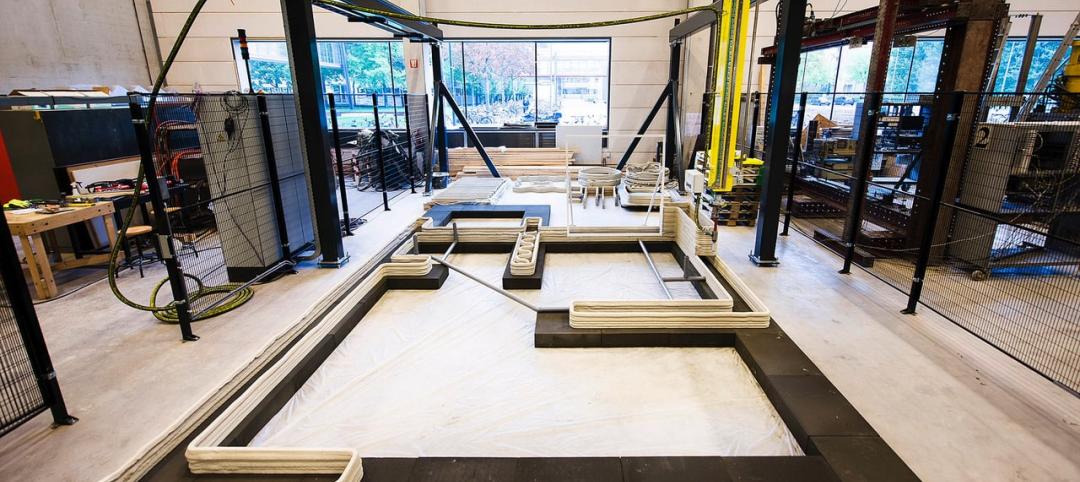Last week, vertical transportation giant thyssenkrupp debuted a novel technology that could transform its parts and materials supply chain in dense urban environments.
As part of a U.S. Senate Field Hearing on automotive innovation, January 24 at the Washington (D.C.) Auto Show 2018, thyssenkrupp showcased its newly developed self-driving delivery robot. Co-developed by software maker TeleRetail, the system is designed to transport spare parts and materials to field technicians working in busy, congested urban markets.
During elevator and escalator servicing sessions, spare parts are needed quickly, and a technician either has to drive back to base in his or her service vehicle or have it delivered by a colleague. With increased traffic clogging up city streets, the pressure on the supply chains is rapidly increasing, according to thyssenkrupp.
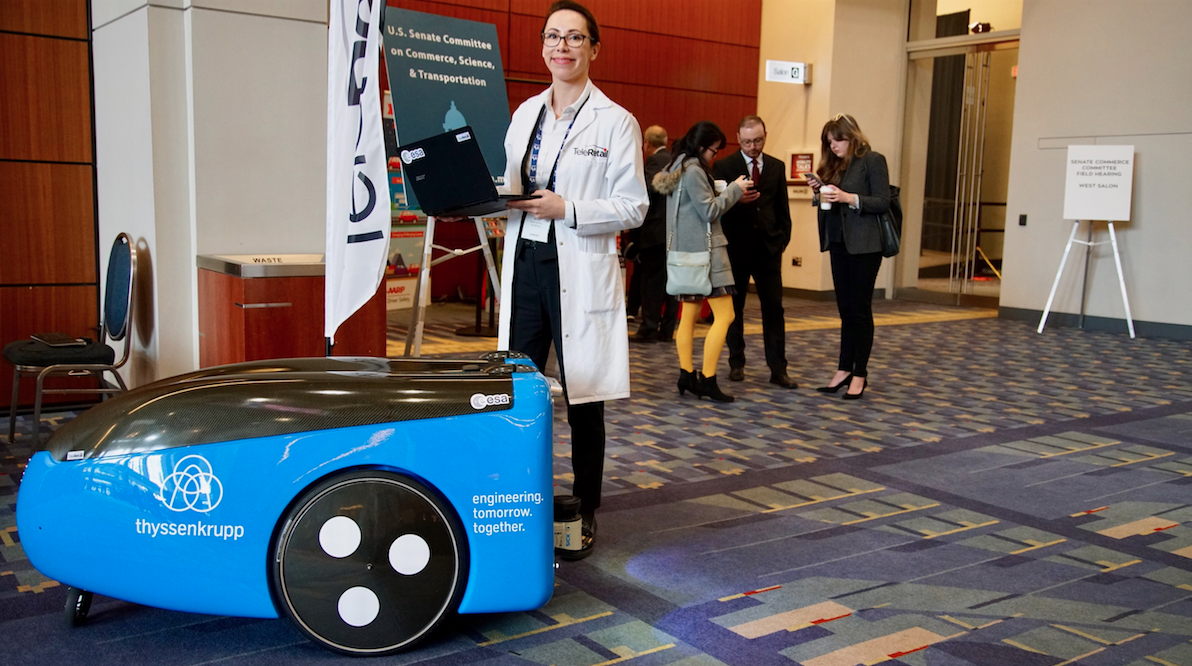 Xenia Scholl of TeleRetail poses with the delivery robot at the Washington (D.C.) Auto Show 2018. Photo courtesy thyssenkrupp
Xenia Scholl of TeleRetail poses with the delivery robot at the Washington (D.C.) Auto Show 2018. Photo courtesy thyssenkrupp
“This is a major urbanization challenge that our service technicians are already experiencing today,” said Ivo Siebers, Senior Vice President of Global Logistics, thyssenkrupp Elevator. “With driverless delivery robots, we could fill a gap and get spare parts from our warehouses to the jobsite faster, more efficiently, and with less impact on the environment.”
Measuring 33 inches wide, the delivery robots can travel on sidewalks and can carry payloads weighing up to 77 lbs. An online logistics platform allows technicians and the operations center to track the progress of deliveries in real time.
“Fast-growing American metropolitan areas need intelligent solutions to cover the last mile in delivering spare parts to our technicians,” added Siebers. “In connection with TeleRetail, we are testing autonomous vehicles to solve this growing logistical problem.”
Related Stories
| Jan 24, 2017
BD+C Accelerate Live! AEC Innovation Conference
Building Design+Construction's inaugural Accelerate Live!
AEC Tech | Dec 22, 2016
The success of your data strategy depends on healthy business practices
Data and digital tools are an absolute given to today’s building design and construction process. But creating a true data-driven workflow requires more than just a solid strategy, writes Proving Ground’s Nathan Miller.
AEC Tech | Dec 18, 2016
Customized future weather data now available for online purchase
Simulation tool, developed by Arup and Argos Analytics, is offered to help owners and AEC firms devise resilience strategies for buildings.
Virtual Reality | Nov 16, 2016
Converting 3D model files to VR, with one click
IrisVR offers two new products to simplify and enhance the application of virtual reality for designing projects.
AEC Tech | Sep 6, 2016
Innovation intervention: How AEC firms are driving growth through R&D programs
AEC firms are taking a page from the tech industry, by infusing a deep commitment to innovation and disruption into their cultural DNA.
Hardware | Aug 11, 2016
Kyocera introduces the DuraForce PRO, a rugged smartphone equipped with an HD action camera (UPDATED)
The Super Wide View HD Action Camera and rugged design allow users to capture their adventures on land, air, or sea.
AEC Tech | Jun 27, 2016
If ‘only the paranoid survive,’ what does it take to thrive?
“Sooner or later, something fundamental in your business world will change.” The late Andrew Grove (1936-2016), Co-founder of tech giant Intel Corp., lived by these words.
AEC Tech | Jun 17, 2016
Driverless cars could soon start impacting commercial, retail project design
Offsite parking and more space for valet parking lines are among the foreseeable changes.
3D Printing | Jun 14, 2016
By 2021, 3D concrete printing is projected to be a $56.4 million industry
The 3D concrete printing industry is expected to more than double in size within the next five years.
BIM and Information Technology | Jun 13, 2016
The race to digitize the globe with 3D imagery
Tech firms are creating a highly-detailed virtual planet available instantly for those who would like to scrutinize it. SmithGroupJJR's Stephen Conschafter details the new technologies being used to map our world.


